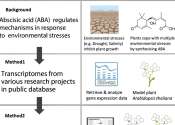Plant warfare: The crucial function of Nrc proteins in tomato defense mechanisms
In the fascinating world of plant biology, a study recently featured on the cover of The Plant Journal has been turning heads. The research delves into the intricate defense mechanisms of tomatoes against the notorious bacterial ...







